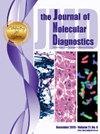A Versatile and Upgraded Version of the LundTax Classification Algorithm Applied to Independent Cohorts
IF 3.4
3区 医学
Q1 PATHOLOGY
引用次数: 0
Abstract
Stratification of cancer into biologically and molecularly similar subgroups is a cornerstone of precision medicine. The Lund Taxonomy classification system for urothelial carcinoma aims to be applicable across the whole disease spectrum including both non–muscle-invasive and invasive bladder cancer. A successful classification system is one that can be robustly and reproducibly applied to new samples. However, transcriptomic methods used for subtype classification are affected by analytic platform, data preprocessing, cohort composition, and tumor purity. Furthermore, only limited data have been published evaluating the transferability of existing classification algorithms to external data sets. In this study, a single sample classifier was developed based on in-house microarray and RNA-sequencing data, intended to be broadly applicable across studies and platforms. The new classification algorithm was applied to 10 published external bladder cancer cohorts (n = 2560 cases) to evaluate its ability to capture characteristic subtype-associated gene expression signatures and complementary data such as mutations, clinical outcomes, treatment response, or histologic subtypes. The effect of sample purity on the classification results was evaluated by generating low-purity versions of samples in silico. The classifier was robustly applicable across different gene expression profiling platforms and preprocessing methods and was less sensitive to variations in sample purity.
适用于独立队列的多功能升级版 LundTax 分类算法。
将癌症分为生物和分子相似的亚组是精准医疗的基石。隆德分类学尿路上皮癌(UC)分类系统旨在适用于整个疾病谱,包括非肌层浸润性和浸润性膀胱癌。要使分类系统发挥作用,最重要的是该系统能稳健、可重复地应用于新样本。然而,用于亚型分类的转录组学方法会受到分析平台、数据预处理、队列组成和肿瘤纯度的影响。此外,评估现有分类算法在外部数据集上可移植性的数据也很有限。本研究基于内部微阵列和 RNA 序列数据开发了单样本分类器,旨在广泛适用于各种研究和平台。新的分类算法应用于 10 个已发表的外部膀胱癌队列(n=2560 例),以评估其捕获特征性亚型相关基因表达特征以及突变、临床结果、治疗反应或组织学亚型等补充数据的能力。通过在硅学中生成低纯度样本,评估了样本纯度对分类结果的影响。该分类器可在不同的基因表达谱平台和预处理方法中稳健应用,对样本纯度的变化不太敏感。
本文章由计算机程序翻译,如有差异,请以英文原文为准。
求助全文
约1分钟内获得全文
求助全文
来源期刊
CiteScore
8.10
自引率
2.40%
发文量
143
审稿时长
43 days
期刊介绍:
The Journal of Molecular Diagnostics, the official publication of the Association for Molecular Pathology (AMP), co-owned by the American Society for Investigative Pathology (ASIP), seeks to publish high quality original papers on scientific advances in the translation and validation of molecular discoveries in medicine into the clinical diagnostic setting, and the description and application of technological advances in the field of molecular diagnostic medicine. The editors welcome for review articles that contain: novel discoveries or clinicopathologic correlations including studies in oncology, infectious diseases, inherited diseases, predisposition to disease, clinical informatics, or the description of polymorphisms linked to disease states or normal variations; the application of diagnostic methodologies in clinical trials; or the development of new or improved molecular methods which may be applied to diagnosis or monitoring of disease or disease predisposition.

 求助内容:
求助内容: 应助结果提醒方式:
应助结果提醒方式:


